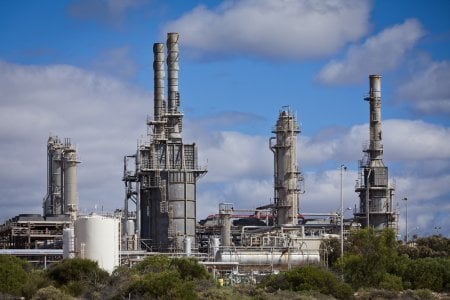Future Gas Strategy raises concerns on future gas needs: ‘Why are we paying more?’
By
Seia Ibanez
- Replies 6
As the Australian government unveils its Future Gas Strategy, many may be wondering how this will impact their energy bills and the nation's energy security.
The strategy, which aims to expand the gas industry, has sparked a heated debate between the government's desire to reduce carbon emissions and bolster our manufacturing sector.
This complex issue raises a critical question for all Australians: Will there be enough affordable gas for domestic needs?
As pointed by Resources Minister Madeleine King in her Future Gas Strategy, Australia is a global powerhouse in the gas export market, providing 20 per cent of the world's gas needs.
Despite this, ABC News Chief Business Correspondent Ian Verrender said, ‘And yet, we are plagued by domestic shortages.’
‘Why, if we are already the world's biggest seaborne exporter of liquefied natural gas, are we paying more than consumers in countries to which we export?’

Verrender said that occasionally, the price gap is significant enough to make purchasing Australian liquefied natural gas (LNG) in Japan and transporting it back home economically viable. As evidence, a new LNG import terminal is nearing completion in Port Kembla.
‘Japan is our biggest export market, taking around 40 per cent of all shipments. China is the second biggest buyer, taking a little under a quarter, with South Korea and Taiwan accounting for most of the rest.’
He pointed out that the crux of the problem lies in the government's past failures to secure domestic gas supplies and the industry's over-commitment to exports, leading to Australians paying more for gas than the countries we export to.
‘The federal and Queensland governments failed to put into place adequate safeguards to ensure supply when the global gas giants began to exploit the new coal seam gas fields. And the exporters committed more gas to exports than they could access after they ran into extraction issues,’ he said.
The cost of living is a constant concern, and energy bills are a significant part of that. Gas plays a crucial role in electricity generation, especially during peak times, and its price directly affects the cost of electricity.
With global gas prices soaring, partly due to geopolitical tensions like the conflict in Ukraine, Australian households have seen their energy bills skyrocket.
This has contributed to the nation's inflation woes and prompted the Reserve Bank to raise interest rates, further straining household budgets.
In response to these challenges, previous governments have threatened gas exporters with export controls to ensure adequate domestic supplies.
The Albanese government went a step further by imposing a $12 per gigajoule emergency price cap, a move that sparked controversy over government interference in a ‘free market’.
While these measures have provided temporary relief, the Australian Competition and Consumer Commission (ACCC) warned that without significant changes, Australia could face gas shortages from 2027 onwards.
‘Despite our status as a major supplier, Australia has lagged competitors such as Qatar and Norway when it comes to generating government revenue,’ Verrender said.
Western Australia stands out as a success story, having implemented a reservation policy that requires offshore gas producers to allocate 10 per cent of their output to the domestic market.
‘If the federal government is serious about resuscitating Australian manufacturing and minerals processing, it will need to be accompanied by a policy that ensures adequate supplies of low-cost energy,’ he added.
‘In the short term, that will require a serious overhaul of the east coast gas export industry and not merely a push to exploit more gas fields.’

What do you think of this story, members? Share your experiences and tips in the comments below.
The strategy, which aims to expand the gas industry, has sparked a heated debate between the government's desire to reduce carbon emissions and bolster our manufacturing sector.
This complex issue raises a critical question for all Australians: Will there be enough affordable gas for domestic needs?
As pointed by Resources Minister Madeleine King in her Future Gas Strategy, Australia is a global powerhouse in the gas export market, providing 20 per cent of the world's gas needs.
Despite this, ABC News Chief Business Correspondent Ian Verrender said, ‘And yet, we are plagued by domestic shortages.’
‘Why, if we are already the world's biggest seaborne exporter of liquefied natural gas, are we paying more than consumers in countries to which we export?’

Concerns were raised about the country’s future gas needs with the Future Gas Strategy. Credit: Shutterstock
Verrender said that occasionally, the price gap is significant enough to make purchasing Australian liquefied natural gas (LNG) in Japan and transporting it back home economically viable. As evidence, a new LNG import terminal is nearing completion in Port Kembla.
‘Japan is our biggest export market, taking around 40 per cent of all shipments. China is the second biggest buyer, taking a little under a quarter, with South Korea and Taiwan accounting for most of the rest.’
He pointed out that the crux of the problem lies in the government's past failures to secure domestic gas supplies and the industry's over-commitment to exports, leading to Australians paying more for gas than the countries we export to.
‘The federal and Queensland governments failed to put into place adequate safeguards to ensure supply when the global gas giants began to exploit the new coal seam gas fields. And the exporters committed more gas to exports than they could access after they ran into extraction issues,’ he said.
The cost of living is a constant concern, and energy bills are a significant part of that. Gas plays a crucial role in electricity generation, especially during peak times, and its price directly affects the cost of electricity.
With global gas prices soaring, partly due to geopolitical tensions like the conflict in Ukraine, Australian households have seen their energy bills skyrocket.
This has contributed to the nation's inflation woes and prompted the Reserve Bank to raise interest rates, further straining household budgets.
In response to these challenges, previous governments have threatened gas exporters with export controls to ensure adequate domestic supplies.
The Albanese government went a step further by imposing a $12 per gigajoule emergency price cap, a move that sparked controversy over government interference in a ‘free market’.
While these measures have provided temporary relief, the Australian Competition and Consumer Commission (ACCC) warned that without significant changes, Australia could face gas shortages from 2027 onwards.
‘Despite our status as a major supplier, Australia has lagged competitors such as Qatar and Norway when it comes to generating government revenue,’ Verrender said.
Western Australia stands out as a success story, having implemented a reservation policy that requires offshore gas producers to allocate 10 per cent of their output to the domestic market.
‘If the federal government is serious about resuscitating Australian manufacturing and minerals processing, it will need to be accompanied by a policy that ensures adequate supplies of low-cost energy,’ he added.
‘In the short term, that will require a serious overhaul of the east coast gas export industry and not merely a push to exploit more gas fields.’
Key Takeaways
- Resources Minister Madeleine King has unveiled plans for the expansion of Australia's gas industry amidst criticism from environmental groups.
- High domestic gas prices and shortages raise concerns despite Australia being a leading LNG exporter.
- The federal government has previously implemented export controls and price caps to manage domestic supply and affordability issues.
- A potential solution includes a policy overhaul to secure low-cost energy for Australian businesses and the revival of manufacturing and minerals processing sectors.







